Shopify AlternativesNearly everyone now associates Shopify with shopping online for a valid purpose. With over a million businesses using it in more than 175 countries, it is one of the most widely used e-commerce websites worldwide. Assessing the top Shopify alternatives and examining the advantages and disadvantages of each e-commerce platform will help us understand why some businessmen have switched from Shopify to BigCommerce. Operating an online store is made possible by the e-commerce programme Shopify. The platform allows you to do many things, such as create a website, manage products, figure out shipping costs, and sell through various channels. You're also exempt from support and maintenance duties because Shopify is a hosted, cloud-based solution. Including its Shopify and Shopify Plus e-commerce services, Shopify offers support for both little and big businesses. Furthermore, even if there isn't a free plan, Shopify does provide Shopify Lite as a choice if you want to add a buy button to an already-existing website or blog. 1. WooCommerce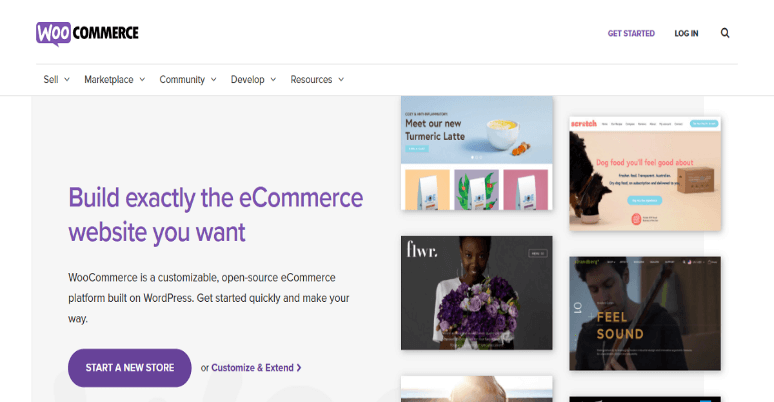
If you do even a little research on e-commerce software, WooCommerce will come up. By following the WooCommerce tutorial we've developed for you, you may set up your own WooCommerce store. One of the finest Shopify options for many business owners is WooCommerce. It is open-source, totally free to use, and-best of all-receives top marks for measuring visitor satisfaction. Even some users assert that it is in many ways superior to Shopify. Scalability is a little tricky, if you want the more sophisticated features, you'll have to buy the pricier edition. But aside from that, WooCommerce offers everything you could possibly need. An expensive cart can be quickly added to a website. Furthermore, it is responsive, making the creation of websites that are optimised for mobile devices simple. Only the hosting fee needs to be paid. Additionally, unlike Shopify, you simply have to make a one-time purchase to access their advanced services. You should be aware that WooCommerce isn't particularly good at troubleshooting. You can dramatically increase the speed of your WooCommerce website when used in conjunction with trustworthy e-commerce hosting options. To improve the efficiency of your store, you can even combine it with a number of plugins for abandoned carts. You can configure your website so that clients can add more products or recommendations with just one click if you wish to upsell after a sale. Advantages:
Disadvantages:
2. BigCommerce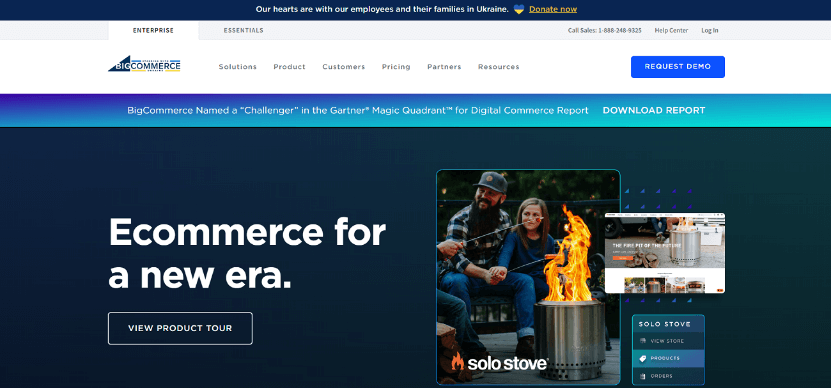
BigCommerce is a fantastic option if you want a straightforward, no-frills experience and the adaptability of using a drag-and-drop editor when putting up your website. Although there are many beautiful themes on the platform, just seven are available for free in all niches. The premium ones will cost you money, which makes it more customizable than Shopify. However, the load times of BigCommerce are a little slower than those of other sites. Advantages:
Disadvantage:
3. Magento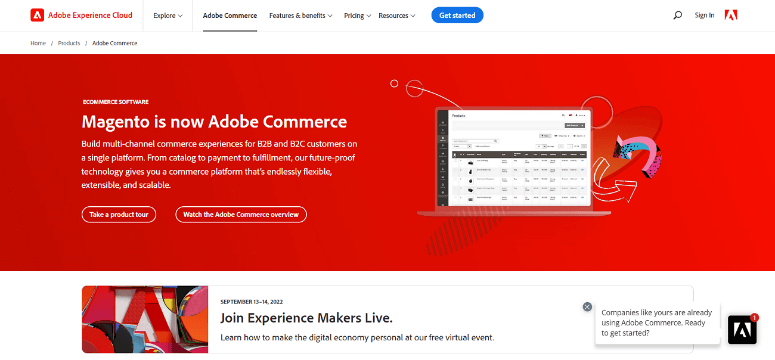
Magneto may already be recognizable to consumers. In 2011 eBay bought the business, and in 2018 Adobe did the same. This well-known platform is excellent for store owners who have been in business for some time and has a large and well-established community worldwide. It's simple to comprehend why Magento is so well-liked when you consider the costs. It's one of the greatest Shopify alternatives because the pricing is so similar to WooCommerce's. The hosting, the themes, and the plugins must be purchased in addition to the free content management system. However, Magento is essentially a CMS platform that allows you to concentrate on selling all of your products through an open-source ecosystem, which is excellent for companies trying to grow. Advantages:
Disadvantages:
4. Opencart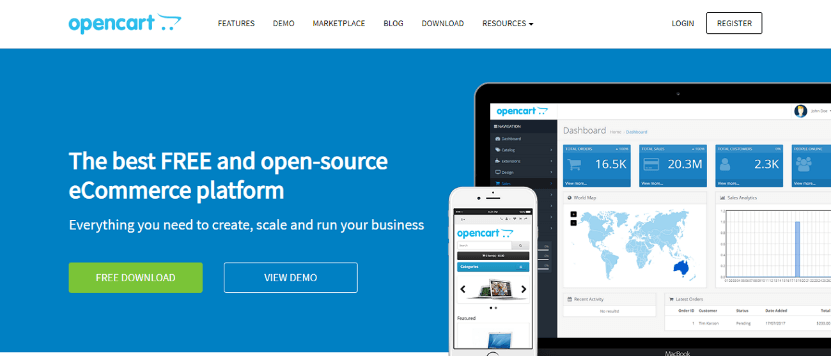
OpenCart is a free Shopify substitute with a comparatively up-to-date framework that enables you to build professional-looking websites that you can tailor to your needs. It has a sizable user base and excellent documentation. The vast majority of e-commerce clients often want it to accommodate thousands of add-ons and third-party modules. Advantages:
Disadvantages:
5. Wix
Wix, which was founded in 2006, offers business solutions that are perfect for e-commerce companies and makes it simple for anyone to design a website. Wix can be a better choice than Shopify if you have little experience and need a very straightforward website builder. Advantages:
Disadvantages:
6. Shift4Shop
Shift4Shop has provided SEO-focused e-commerce software since 1997. Therefore, you could favour Shift4Shop over Shopify if you're an SEO enthusiast and significantly rely on organic search. Advantages:
Disadvantages:
7. Pinnacle Cart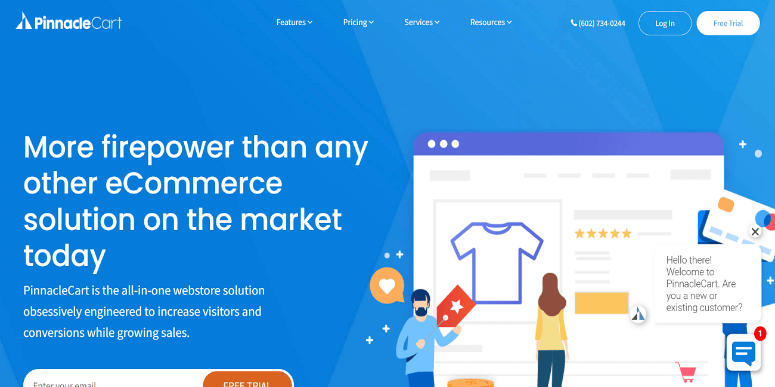
Pinnacle Cart, a shopping cart solution with a strong emphasis on marketing, was established in 2003 and is intended for small to mid-sized businesses. If you're seeking for more control over your shop and more SEO tools as a Shopify alternative, this is an excellent option. Advantages:
Disadvantages:
8. Squarespace
Squarespace could be just what you need if you want to launch your online business and have a limited selection of products. The platform offers a great website-building tool and a selection of templates. With a little adjusting, you can create a fantastic online store. Moreover, users should be aware that Squarespace only accepts online payments made through PayPal and Stripe. Additionally, it includes various marketing tools including tracking for Amazon Affiliates, MailChimp, and AdWords. Advantages:
Disadvantages:
9. X-Cart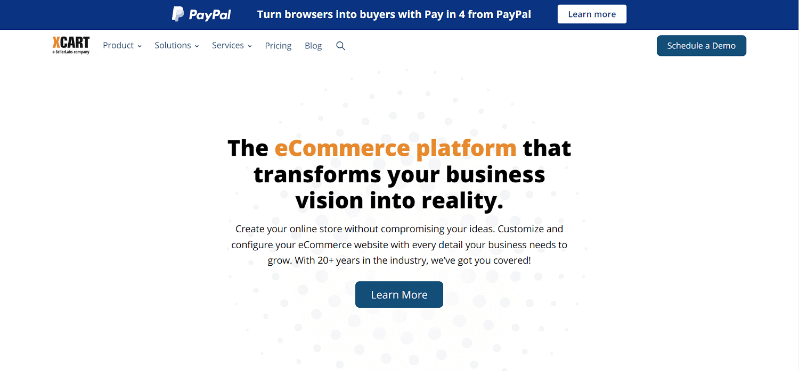
The Qualiteam-created X-Cart is quick, efficient, and comparatively simple to use. It has a tonne of functionality and is marketed as an all-in-one solution for your ecommerce requirements. This robust platform offers an infinite amount of adjustments, and a skilled developer may utilise it without difficulty to build a great store, making it a strong Shopify alternative. But be aware that the company could not provide much assistance if there is a problem. They'll only attribute the problem to your servers, leaving you to deal with the solution entirely on your own. Advantages:
Disadvantages:
10. Square Online Store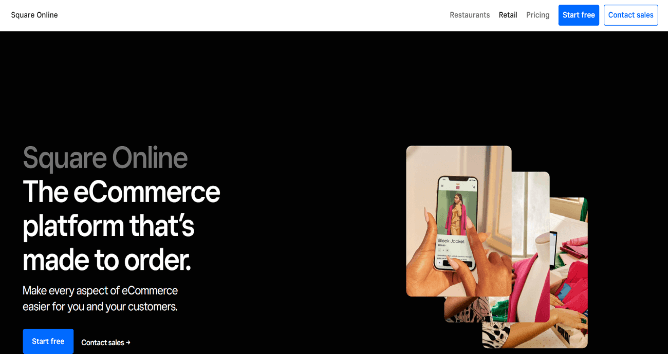
Several people recommend The Square Online Store as an all-inclusive answer to all e-commerce demands. Square Online Store can be a good alternative to Shopify if it seems overkill for your business ambitions. Although Square's POS systems are its main selling point, company owners have recently started to favour its e-commerce platform as well. You have a free plan with a transaction fee associated with each payment. You get support for an infinite number of products, the ability to use a shopping cart, and more in exchange. Even yet, there are only a few features available, and Square is the solely supported payment processor. You must select their premium plan if you want to utilise PayPal. It's an excellent Shopify substitute for newcomers. Additionally, when your store expands, you'll want to add more options for receiving payments and other e-commerce tools, but that's not possible with the free plan. Your internet business may suffer as a result. Advantages:
Disadvantages:
11. Weebly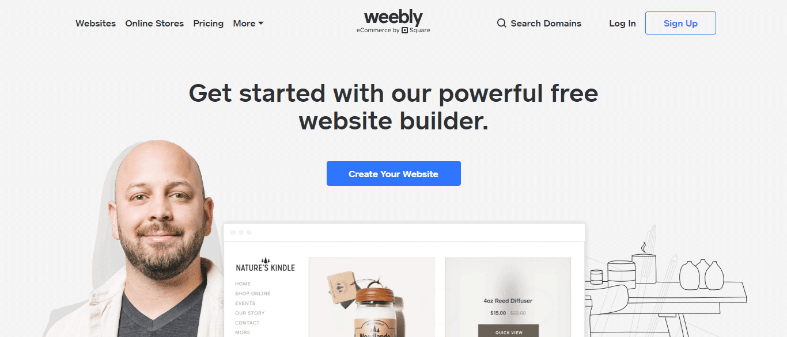
Another practical hosted platform for individuals looking for a free Shopify substitute is Weebly. Weebly's most expensive plan is significantly less expensive than Shopify's Basic Plan despite having fewer features overall than Shopify. Weebly can be the solution you're looking for if you don't want to shell out a lot of cash for an online store that works perfectly. Weebly is a fantastic option that is straightforward to use right out of the box if you want to create a website utilising a straightforward builder. Advantages:
Disadvantage:
12. Ecwid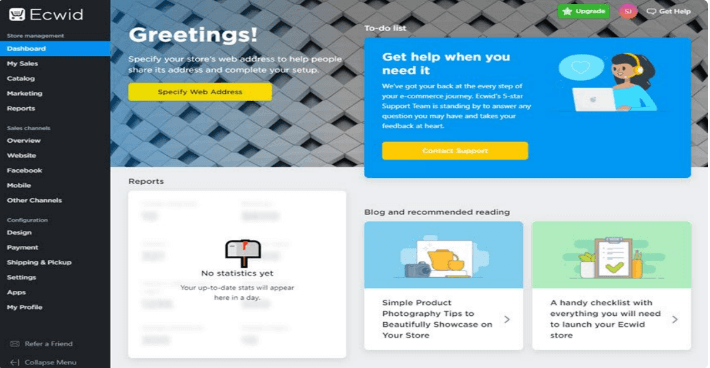
Another excellent Shopify substitute is Ecwid. It functions as an addition that enables you to deliver content on your current websites and social media platforms like Instagram, Facebook, Amazon, WhatsApp, etc. Even a WordPress-based store can be created using their plugin. For user convenience and help with payments and sales, it provides a number of POS tools and payment gateway choices. Another benefit of Ecwid is that you can also sell digital goods using it. Furthermore, it provides alternatives for marketing automation and enables businesses to provide clients with discounts. Advantages:
Disadvantages:
Next TopicWatch Cartoon Alternatives
|
 For Videos Join Our Youtube Channel: Join Now
For Videos Join Our Youtube Channel: Join Now
Feedback
- Send your Feedback to [email protected]
Help Others, Please Share










